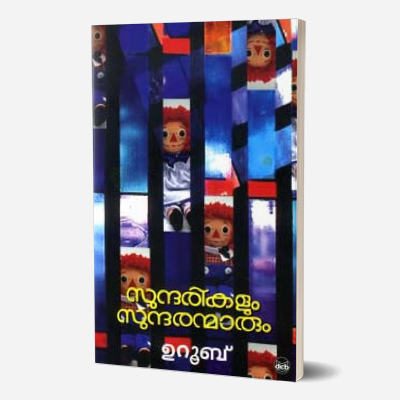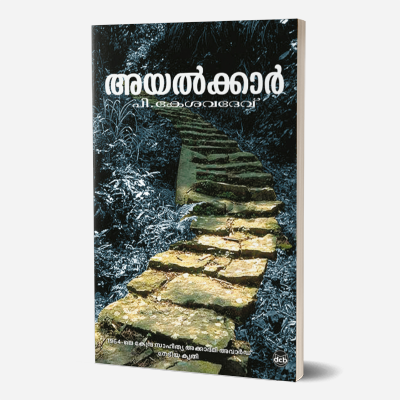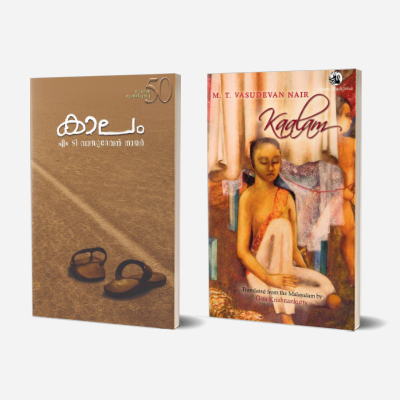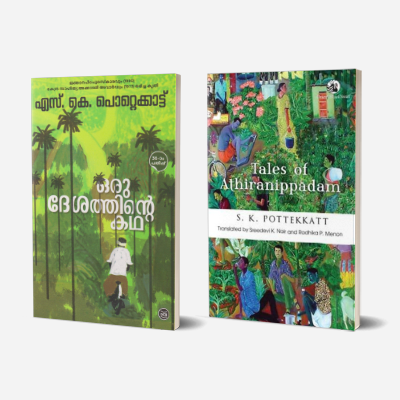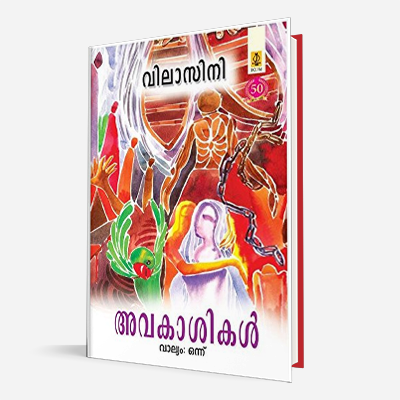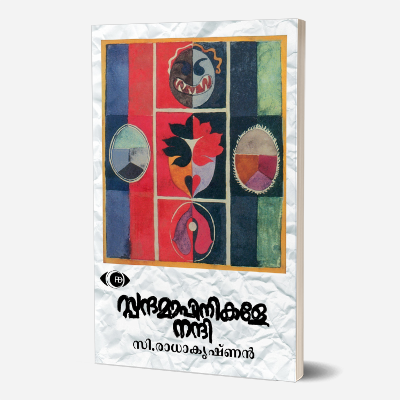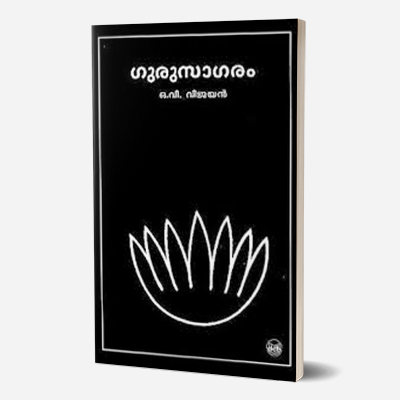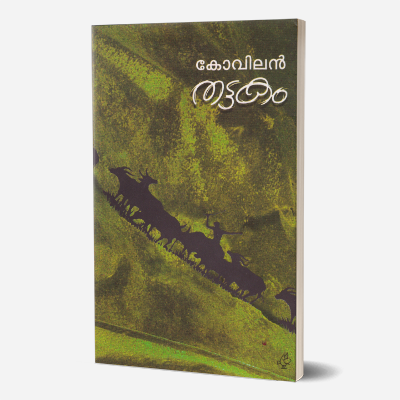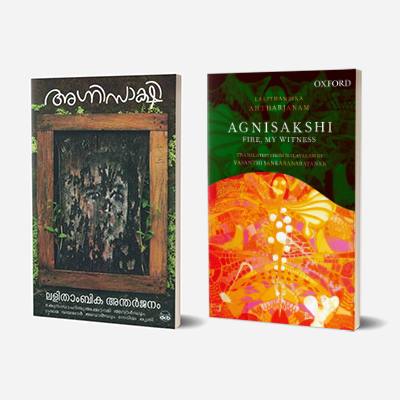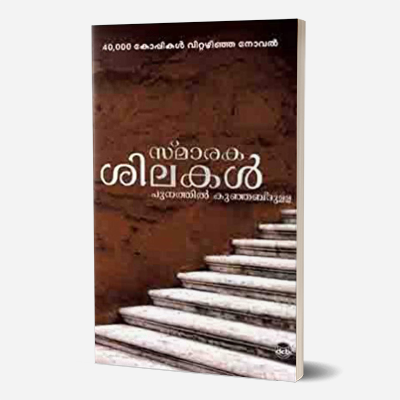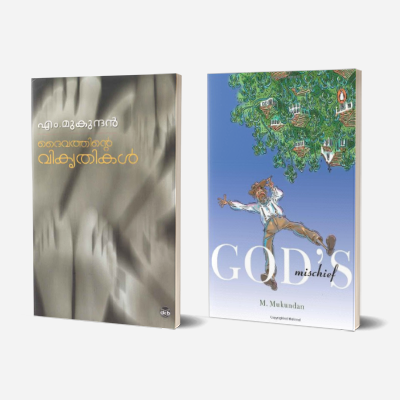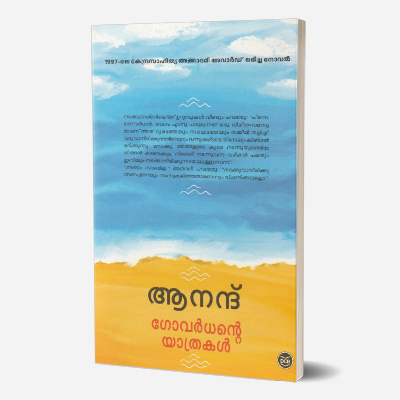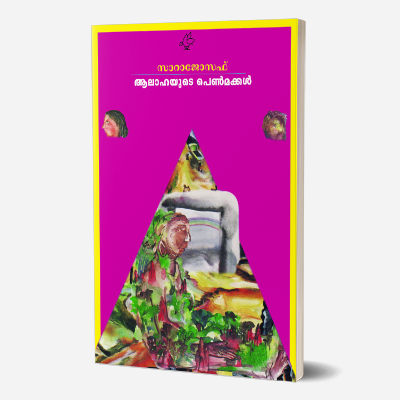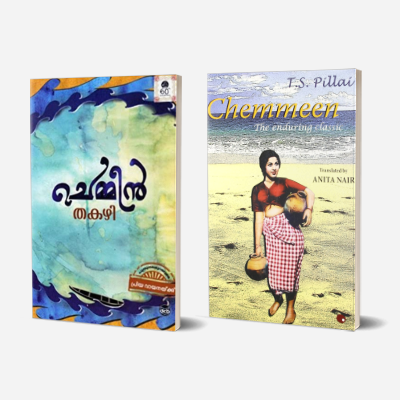Aalahayude Pennmakkal
By Sarah Joseph
The novel is the first in the trilogy, which includes Maatathi (2001) and Othappu (2003). The novel deals with the condition of marginalized groups in society. The living and existential conditions of these groups are seldom acknowledged by the society at large and generally they are displaced from their places of stay and livelihoods, usually in the name of development and change. The transformation in their existential struggle is narrated by Annie, the central character, who gives voice to three generations of her subaltern group albeit with a feminist perspective. It won three major awards—Kerala Sahitya Akademi (2001), Kendra Sahitya Akademi Award (2003) and Vayalar Award.
About the Author
Sarah Joseph is an eminent Malayali novelist, short-story writer and social activist. Joseph has been at the forefront of the feminist movement in Kerala and is the founder of Manushi (organization of thinking women). Her works are essentially liberalistic and convey the sentiments of various oppressed groups. Her collection of short stories Paapathara is considered a milestone in feminist writing in Malayalam.
Also read
Othappu
Translated into English as Othappu: The Scent of the Other Side by Jancy James
The third in a trilogy of novels-the other two being Aalahayude Pennmakkal (1999) and Maatathi (2001)—Othappu is set in the Kerala Christian community, which splits broadly into Roman Catholics, Syrian Christians, and Charismatics who emphasize free worship and faith-healing.It raises important issues revolving around a self-consciously religious society: the role of piety, spirituality, family, sexuality, and the freedom of the individual or the lack of it. Peppered and layered with Biblical quotations and allusions, and carrying echoes and subtexts that parallel events in the New Testament, the novel gives us rare glimpses of Malayali Christian society. Literally meaning outrage or scandal directly linked with breaking sexual codes of behavior, Othappu is a crucial text chiefly because the socio-psychological implications of convent-life, its contradictions and conflicts, and female subjectivity in the Malayali Christian culturescape have rarely been discussed in Indian fiction.
Aathi
Translated into English as Gift in Green by Valson Thampu
An eco-spiritual search for light and life in a world inching towards dystopia, Aathi is a tantalizingly unconventional narrative that explores, on multiple levels, the pain and poetry that eventuate from the disruption of the intimate relationship between a people and their life-world, using water (the ‘water-life’ of the people of Aathi) as the overarching metaphor that mirrors the degradation of the society. Between the polarities of attachment and abandonment, darkness and light, predatory progress and the sheer will to survive, unfolds the saga of a people confronted by the behemoth of progress driven by Kumaran, who seeks to abandon water-life, threatening its very existence. But such is the author’s faith in the resilience of life and nature and her belief in the futility of trying to control something as fluid and eternal as water-life that what promises to be the end is also the hope of a new beginning.
Chemmeen
By Thakazhi Sivasankara Pillai
Translated into English by Anita Nair
First published in 1956, Chemmeen tells the story of the relationship between Karuthamma, the daughter of a Hindu fisherman, and Pareekkutty, the son of a Muslim fish wholesaler. Unable to live with the man she loves, Karutthamma marries Palani, who, despite the scandal about his wife’s past, never stops trusting her, a trust that is reaffirmed each time he goes to sea and comes back safe since the sea-mother myth among the fishing community along the coastal Kerala state in the Southern India is that the safe return of a fisherman depends on his wife’s fidelity. It is to perpetuate this myth that Thakazhi wrote this novel. The lives of the people at the water’s edge, their culture, traditions, and superstitions were dear to him and this manifested in Chemmeen. Thakazhi made a departure from his vowed commitment to realism as it appeared in his works till then. He brought in a fresh breeze of lyricism and romanticism. The novel acquires the quality of a fable in which life in the fishermen’s community is depicted with great emotional detail. This hugely successful novel was adapted into a film of the same name, and won critical acclaim and commercial success. It became the first Malayalam novel to win the Sahitya Akademi Award (1957) and was translated into more than 50 languages.
About the Author
Thakazhi Sivasankara Pillai (1912 -1999), popularly known as Thakazhi after his place of birth, was an Indian novelist and short story writer of Malayalam literature. Pillai’s literary works are known to portray the society in Kerala in the mid-20th century. His first short story was Daridran (The Poor) which was published in 1929. After many short stories, he wrote Thyagathinu Prathiphalam (Fruits of sacrifice) in 1934 which primarily dealt with the social injustices prevalent during that time. This was the first of his 39 novels; he also published 21 anthologies composed of over 600 short stories, two plays and four memoirs.
Also read
Kayar
The epic novel is set in Kuttanad, traces the evolution of the central Travancore society from the early 19th century to the mid-twentieth century. It covers more than two centuries of Kerala life, encompassing six generations of characters. The historic transformation of man’s relationship with land, as also between man and man, men and women and even man and God, forms the staple theme of Kayar. It won the Jnanpith Award in 1984.
